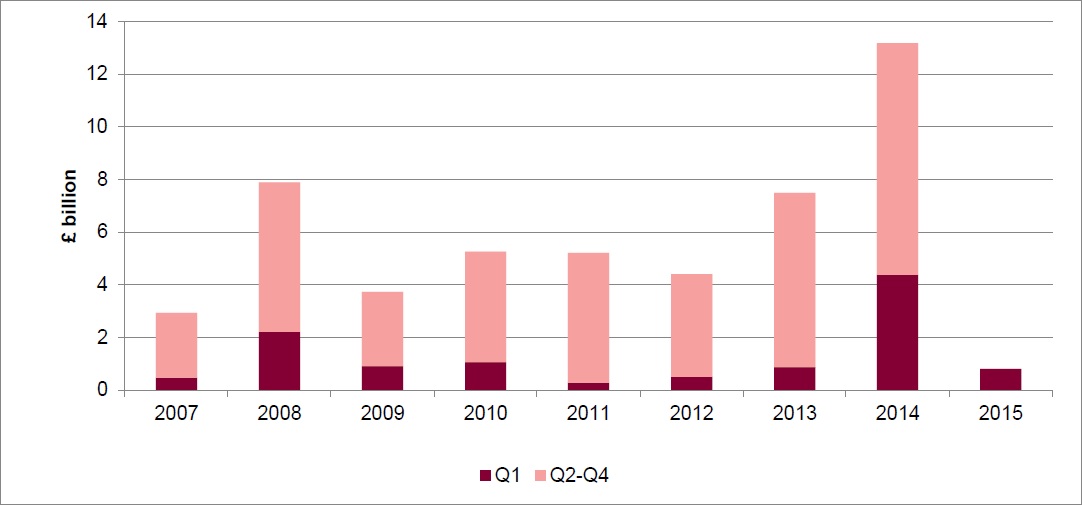A stable government and new entrants into the UK de-risking market indicate that activity is likely to increase later in the year, according to consultancy LCP.
“The result of a Conservative majority should provide a more stable backdrop for transactions over the rest of 2015.” —Charlie Finch, LCPThe first quarter of 2015 was significantly quieter than the corresponding period in 2014, LCP said, with just £804 million ($1.3 billion) in new buy-out and buy-in business completed.
“The result of a Conservative majority should provide a more stable backdrop for transactions over the rest of 2015,” said Charlie Finch, partner at LCP. “Further, movements in bond and swap markets since the general election have made pensioner buy-in pricing more attractive for many schemes.”
He added that the entrance of Scottish Widows as a new provider later this year would “provide welcome additional insurer capacity”. The Lloyds Bank subsidiary is building a team with a view to becoming active in the second half of 2015.
“In combination with Partnership and Just Retirement, who are now writing more significant volumes of business at the smaller end of the market, this ensures continued competition across pension schemes of all sizes,” Finch said.
Legal & General continued its recent dominance in terms of new business volumes in the first three months of the year, writing £644 million—80% of the Q1 total. In 2014 L&G was responsible for almost £6 billion of the £13.2 billion in total new business.
 Source: LCP
Source: LCP
The second quarter has started with more activity, including Rothesay Life’s £675 million buy-in of Lehman Brothers’ UK pension, which is set to become a full buy-out later in the year.
Yesterday, Rothesay announced it was to take on £1.2 billion of individual annuities from Zurich UK Life as the insurance group sought to de-risk its portfolio.
As well as standard buy-ins and buy-outs, two major longevity swaps were completed in the first quarter. Scottish Power offloaded longevity risk valued at £2 billion to Abbey Life, while the Merchant Navy Officers’ Pension Fund established its own insurance subsidiary to take £1.5 billion of longevity risk off the table.
Related Content:PRT Losing to LDI, Survey Finds & UK Annuity Reforms to ‘Boost De-Risking Market’
